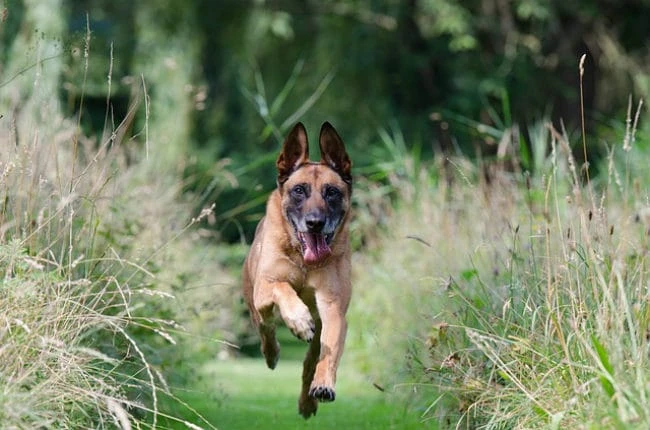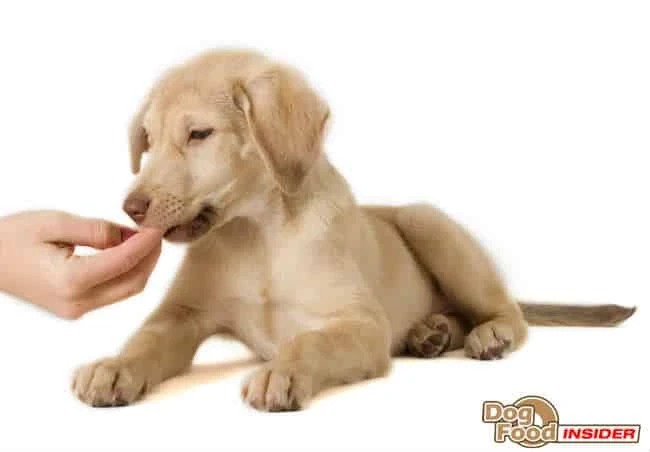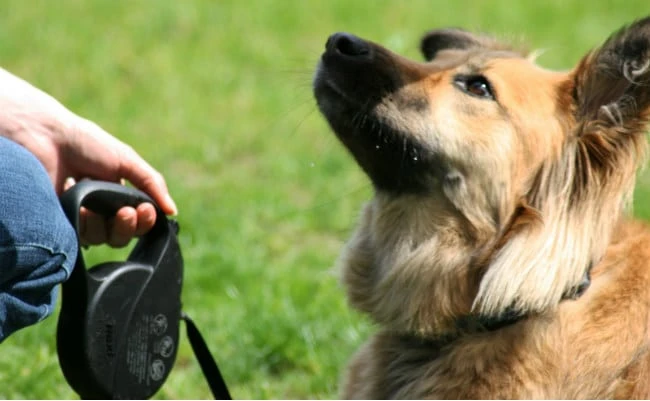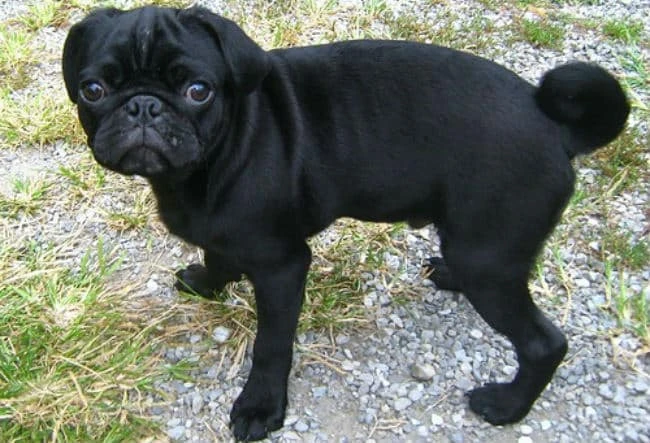Puppy Obedience Training, How to Train a Puppy, Free Puppy Training Tips
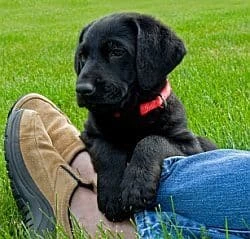
Puppy Obedience Training
In this section learn puppy obedience training techniques, methods and dog training commands.
We have split this section into two…
On this page you can learn how to train a puppy to sit and you can also learn how to understand puppy behavior at certain developmental stages and why your pet may show some puppy aggression and even some dog behavioral problems as he gets older.
If you would like to learn more basic training methods such as the ‘Stay’ and ‘Come’ command, take a look at our other section on puppy obedience training.
Puppy Obedience Training – Development
Before you start puppy obedience training and teaching your puppy certain training techniques such as sit, stay, come, out and no. You need to ask yourself how your puppy learns…
Consequently we will briefly go over the ages at which your puppy develops – before starting the obedience training program.
5 -7 weeks is a vital stage in your pets development as this is when your puppy starts to learn how to behave like a dog. At this age the mother would have already started weaning her puppy’s (normally from about 4 weeks.)
- This is also the age that your puppy will learn how to bite appropriately, (how hard to bite things,) consequently if your puppy has been taken from his mum too early – you may have problems later.

This is also a great age to start house training a puppy as the puppy will not naturally want to potty in his box and will wobble to do their potty away from the whelping box or crate – if they are not able to freely move they will learn that it is ok to potty in their box – not a good move at this early age!
8 – 16 weeks is a crucial stage in your puppy obedience training program – by understanding this stage you will be able to move to the late training techniques at the bottom of the page.
- The reason this stage is so crucial is that it is the point that your puppy learns what is good about his new world and what is bad. This is the point in development of your puppy where you should introduce him to other people, dogs and animals.
- If you don’t socialize your puppy and start teaching him he may well have obedience and behavior problems in later life.
- Remember that your puppy is only baby!
- At 8 weeks old a puppy can hold their bladder for about two hours and double this for 16 weeks old.
4 – 6 months Don’t get complacent as you may think that your puppy understands – but he is still very easily distracted.
- At this age your puppy should be able to hold his bladder for about 4 – 5 hours before needing a potty break
16 – 12 months is the age that your puppy starts to develop sexually – if you have an unneutered male you may notice certain behavior that you didn’t notice before – this includes raising his leg and peeing on the furniture.
- A female can also have her first heat anywhere between 6 – 12 months.
- At 12 months a toy breed is considered an adult or mature – but this increases to about two years when you are training larger dogs.
Puppy Obedience Training: Basic Training
Puppy Obedience Training – Basic Principals
When you are training your puppy it’s important to remember that he is only a baby and will have a very short attention span – so keep the training short and above all – interesting.
1. Remember that we are using reward based obedience training methods – so remember to reward your puppy when he does something right – and do it immediately!
2. Try not to repeat any command more than once as it will become just a noise to your puppy and he won’t understand – keep it short and sharp – but use a friendly voice – you don’t want to scare your puppy.
3. To make your dog training commands clearer and easier to understand – I often use hand gestures at the same point as I say the command – but be consistent – make sure that the whole family use the same dog training commands and gestures. This is so important – it will make the puppy training 10 times easier and so much faster!
4. Even at the early age of 8 weeks you can start puppy obedience training – by training your puppy at this early stage it helps you both bond together.
A puppy needs to be trained so that it can fit in with his environment. A puppy wants to have leadership and feel comfortable in all situations. If you fail to train your dog properly or not at all then you will get drastic results – sometimes minor incidents such as running off or jumping up but unfortunately also major behavior problems like dog or puppy biting. It all comes down to training!
“Quick Tip” – Simple Training Exercises
The age from 6-8 weeks is a great time to introduce some simple puppy training skills – such as sit, come, stay and the ‘no’ and ‘good dog’ command. You can fine tune these skills from this point on – but by starting early your puppy will soak up this new knowledge.
Puppy Obedience Training – How to train a puppy to ‘SIT’
Puppy Obedience Training – The ‘Sit’ Command
1. Remember we are using reward based training methods so get some of your puppy’s favorite treats in your hand.
2. Get the attention of your puppy by bringing him in close to you so that he is looking up at you.
3. Keep the treat in your hand and hold it close to your puppy’s nose so that he can touch it with the end of his nose.
4. Slowly move your hand and the treat over his nose and then his head and back – towards his tail – his eyes will follow the treat and if his front legs are on the ground he should naturally sit as his back end gets closer to the ground as his eyes follow the treat. If he is standing up on his back legs or walking backwards as you move the treat – your hand is too high.
5. As soon as your puppy’s bottom touches the floor – say his name and ‘sit’ – then you must reward him immediately with the treat and make allot of fuss of him – you want to make obedience training fun for your puppy!
6. After your puppy has mastered this – start using a hand gesture as you ask him to sit – but continue rewarding either with a treat or lots of attention.
